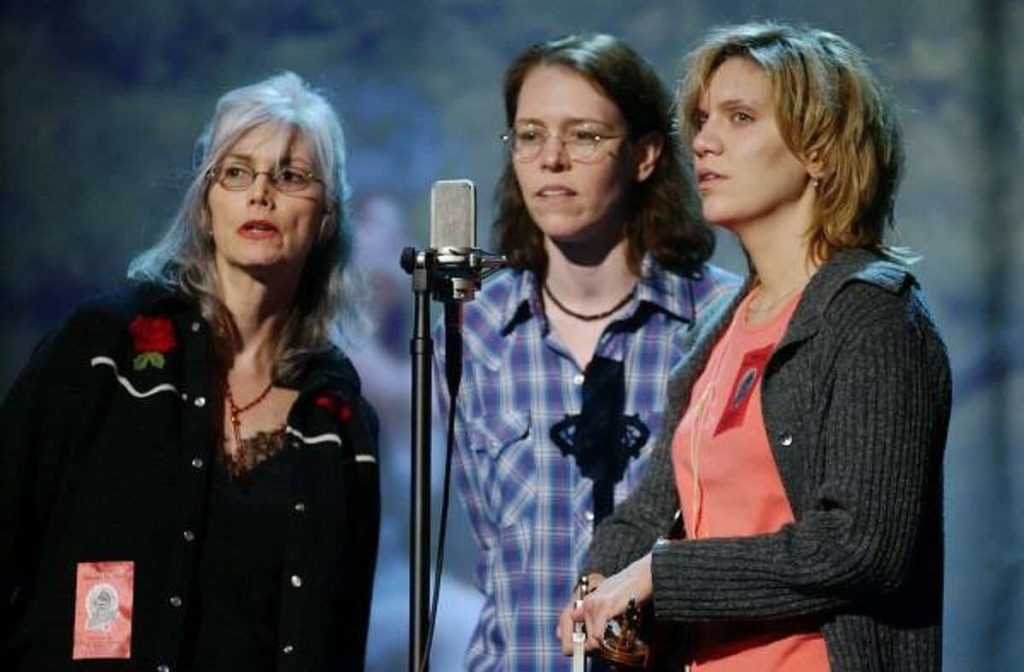
A Timeless Anthem of Hope and Heavenly Reunion
This rendition of “I’ll Fly Away”, performed by the incredibly talented duo of Alison Krauss and Gillian Welch, isn’t just a song; it’s a piece of Americana, a thread woven into the fabric of our cultural memory. Featured on the soundtrack of the critically acclaimed film “O Brother, Where Art Thou?” (2000), this version brought the hymn to a new generation while simultaneously reminding older listeners of its enduring power. The film itself, a Coen Brothers masterpiece set in the Depression-era South, perfectly complements the song’s themes of hardship, faith, and the yearning for a better life beyond earthly struggles. The soundtrack reached number one on the Billboard 200 chart, bringing significant attention to bluegrass and Americana music. While specific chart positions for individual songs off the soundtrack are difficult to pinpoint due to the nature of soundtrack charting at the time, its impact on popularizing the song again is undeniable.
The song itself was written by Albert E. Brumley in 1929. Brumley, a farmer and songwriter from Oklahoma, was inspired by a hymn he heard at a revival meeting. He reportedly penned the lyrics in just 15 minutes, a testament to the song’s simple yet profound message. The lyrics speak of leaving behind the sorrows and trials of this world and “flying away” to a heavenly home. This theme of escape and spiritual liberation has resonated with people from all walks of life, especially during times of hardship and uncertainty. It offered solace during the Great Depression, comfort during wartime, and continues to provide hope in the face of personal struggles.
The beauty of Krauss and Welch’s interpretation lies in its simplicity and raw emotion. Their voices blend seamlessly, creating a hauntingly beautiful harmony that perfectly captures the song’s melancholic yet hopeful spirit. Krauss’s delicate vocals, known for their crystalline clarity, intertwine with Welch’s more grounded, earthy tones, resulting in a performance that feels both timeless and deeply personal. The stripped-down instrumentation, featuring acoustic guitars and gentle harmonies, further enhances the song’s intimacy, allowing the lyrics to take center stage. It’s a performance that feels like a whispered prayer, a quiet moment of reflection in a noisy world.
For many, especially those who grew up in the church or with a strong connection to gospel and bluegrass music, “I’ll Fly Away” evokes powerful memories. It’s a song often sung at funerals and memorial services, offering comfort to those grieving the loss of loved ones. It’s a reminder that death is not an end but a transition, a journey to a place where there are no more tears or pain. It’s a song that speaks to the deepest longings of the human heart, the desire for peace, for solace, for a home that truly feels like home.
This rendition by Alison Krauss and Gillian Welch isn’t just a cover; it’s a reinterpretation that honors the song’s rich history while adding a new layer of emotional depth. It’s a testament to the enduring power of music to connect us to our past, to our faith, and to each other. It’s a song that continues to inspire hope and offer comfort, a timeless anthem that will continue to resonate for generations to come. The film “O Brother, Where Art Thou?” became a cultural phenomenon, and this version of “I’ll Fly Away” played a significant role in its success. It reintroduced this classic hymn to a broader audience, solidifying its place in American musical history. The album also won the Grammy Award for Album of the Year in 2002, further cementing its legacy. It is a song that invites introspection, encourages hope, and reminds us of the promise of a brighter future.